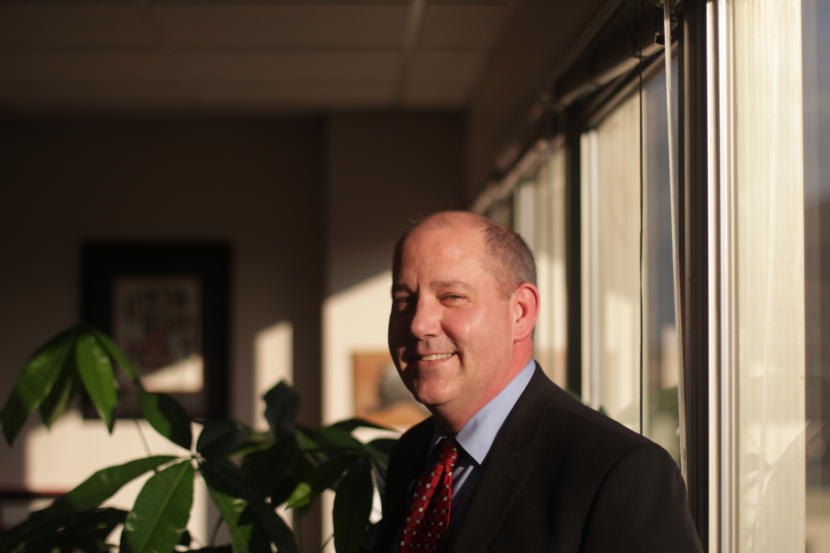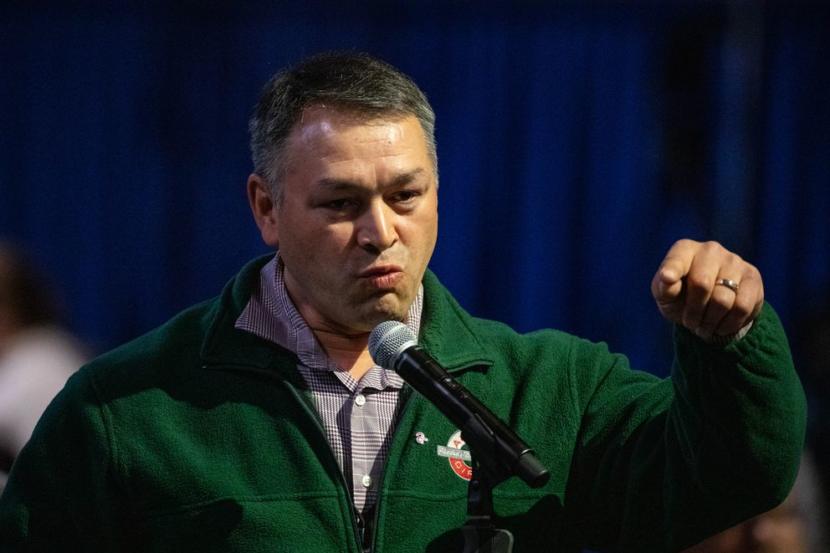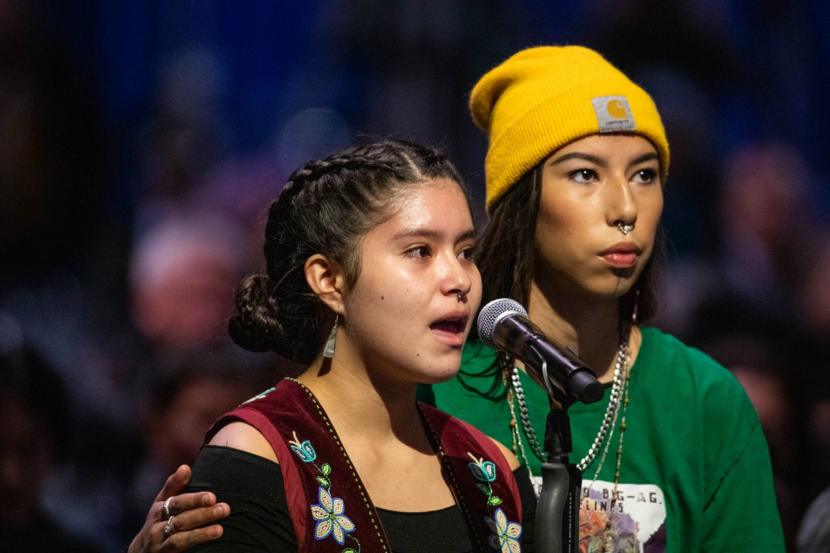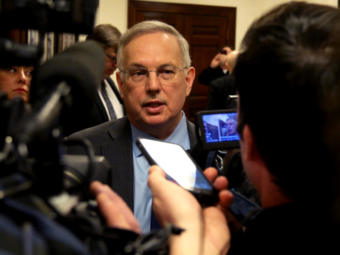
Earlier this year, not long after being sworn in, Alaska Gov. Mike Dunleavy disbanded the state’s climate change response team. And his administration now lacks a coordinated group or policy that guides the government’s response to climate change threats.
Stepping in to fill what it sees as a void is the Alaska Federation of Natives — the state’s most influential Native advocacy group. Earlier this month, at its annual convention, it approved a resolution declaring a climate change state of emergency and convening its own task force.
Native activists say they’d like to see more action from Dunleavy’s administration, citing the fact that climate change is disproportionately affecting Alaska: The state is warming twice as fast as the global average. But Dunleavy’s top environmental regulator, Jason Brune, said that the administration isn’t ignoring the issue.
“I don’t think it is an emergency right now,” Brune, the commissioner of environmental conservation, said in an interview last week. “I think we’re addressing the issues that we’re seeing, and we’ll continue to follow the issue closely.”
He added: “We’re focusing on actions, rather than incessant talk and big reports.”
Brune says he takes his job protecting the environment seriously. At the same time, he’s not shy about his enthusiasm for natural resource extraction, like mining and oil production — he keeps a miniature sandbox in his office that’s set up like an open-pit mine.
Brune used to run an industry group called the Resource Development Council, and he also worked for a company that was pushing the contentious proposal to build the Pebble mine.
Brune said he wasn’t involved with the administration’s decision to abolish the state’s climate policy and response team. But, he added, even just by debating the idea of a tax on carbon emissions — none was ever formally proposed — the team’s existence was sending a bad message to the oil industry, which powers Alaska’s economy.
“That’s something that we don’t even want to consider,” Brune said. “It’s going to economically disadvantage the projects in Alaska. And we need to be doing everything we can to show Alaska’s open for business.”
At AFN’s convention earlier this month, some participants made similar arguments to Brune’s in the debate on the climate resolution. One Native corporation leader, Crawford Patkotak, pushed to make the resolution more industry-friendly, arguing that development can coexist with conservation.

“Let’s approach this very carefully, with the right balance,” said Patkotak, the chair of Arctic Slope Regional Corp., which does business in the oil and gas industry. “Before we tie our hands up, before we start to say, ‘You know what, we agree with all the environmentalists to keep our oil in the ground and we’re going to suffer economically,’ let’s be very careful.”
The young participants who sponsored the resolution said that they’re worried about too much of a focus on economic growth.
“Because I’m sure you guys all have grandchildren, or nieces or nephews,” Fairbanks teenager Nanieezh Peter told participants. “And it’s their futures, and it’s all of our futures and it’s all of our traditions and rights and cultures to keep this land healthy.”
Peter, in an interview, said she thinks participants at AFN’s convention may see climate change as a more urgent issue because it affects them more directly.
The rural villages threatened by coastal erosion are largely Alaska Native, she said. Community members have fallen through weak ice and drowned. And warming is threatening species that are important subsistence foods for many of Alaska’s indigenous residents.
For Alaska Natives, Peter said, “it’s more intense.”
“Because our people have been here for so long,” she said. “And it’s heartbreaking, to have to see all these devastating effects of climate change right now, and knowing that if we keep going at this rate of pollution into our environment, then it’ll get warmer, and more devastation will come from it.”

Peter is also part of another advocacy group, Alaska Youth for Environmental Action, that she said is pushing Dunleavy’s administration to reinstate the climate response team.
“Our governor and our government, right now, need to be taking more responsibility on this,” she said.
While Dunleavy’s administration has avoided much direct engagement on climate change, the state Legislature may be getting closer to taking up the issue, said House Speaker Bryce Edgmon, I-Dillingham.

Edgmon, who’s Alaska Native, said there are rural villages in his district that don’t have fire trucks and were threatened by wildfires amid unprecedented heat and drought last summer; many depend on commercial fishing and subsistence.
“Alaska, for years, has basically just sort of shunted the issue, set it aside. And I think we’re at the point where we can’t do that any more,” Edgmon said in a phone interview. “And if we get extraordinarily dry conditions like we did in 2019 — if we get a repeat of that in 2020, that’s pretty serious stuff. And so the Legislature needs to have that discussion.”
Brune, the environmental conservation commissioner, said he’s excited that young Alaska Natives have organized around the issue. And he said the Dunleavy administration is “absolutely” open to talking about how to deal with climate change’s impacts.
Dunleavy’s administration is looking at how to help relocate communities threatened by coastal erosion, at how to deal with impacts to infrastructure from thawing permafrost and at combating the spread of invasive species, Brune said.
“We’re seeing increased fires, we’re seeing permafrost melting, glaciers are melting,” Brune said. “So, absolutely, we are having impacts from a changing climate in Alaska, more so probably than anywhere else on earth.”
Brune would not say what, exactly, it would take for the administration to deem the issue a statewide emergency.
